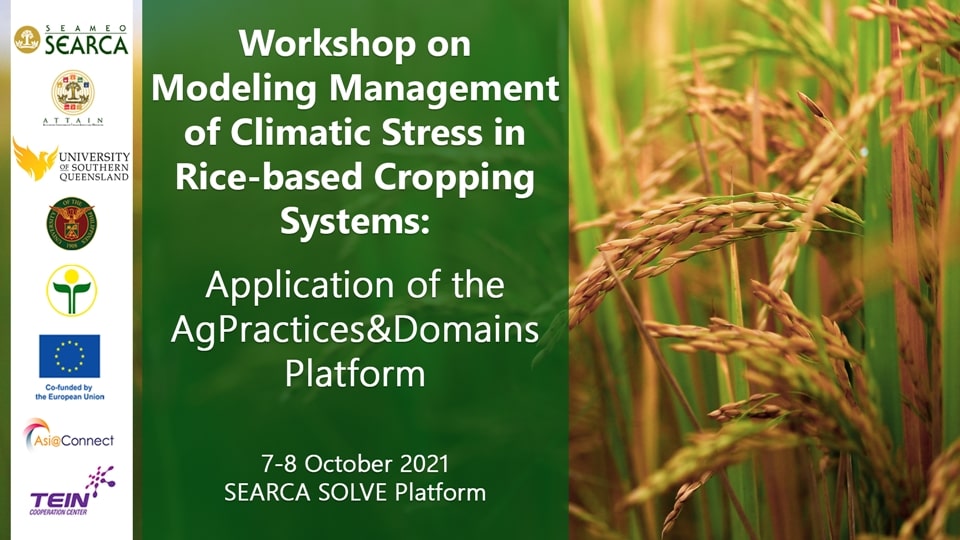
SEARCA in collaboration with the University of Southern Queensland (USQ) and the University of the Philippines Los Baños (UPLB) will be conducting a Workshop on Modeling Management of Climatic Stress in Rice-based Cropping Systems: The Application of the AgPractices&Domains Platform on 7-8 October 2021 via SEARCA’s SOLVE Platform.
The two-day workshop aims to serve as a venue for presentation, discussion, and consultation of the AgPractices&Domains tool as well as to train targeted to potential end users of the tool from Southeast Asian (SEA) countries. The AgPractices&Domains tool provides integrated pest and disease management options in rice-based cropping systems. It aims to be a platform wherein a network of researchers can carry out rice cropping systems’ monitoring and evaluation. Combined with documentation of community of practices, it will further facilitate learning and exchanges between institutions and countries.
The participants will have the chance to experience the use of the AgPractices&Domains tool using the sample data collected and organized by USQ and UPLB. The input panel which has information about the area, and season and coordinate-based field level sowing dates, crop variety, growth, duration, harvest date, yield, nitrogen, water and pest and disease management, and pest and disease observations. The participants will be able to use these inputs based on their selection of research interest to generate survey template for current simulations and predictions validation.
The AgPractices&Domains tool by USQ, which will be hosted by SEARCA under its Agriculture, Forestry, and Natural Resources (AFNR) Knowledge Platform, will serve as a working foundation for the platform and network to develop large scale application including major rice growing areas in Southeast Asia and as well broader application in different crops.
The workshop will be attended by participants from the academe, research institutions, development organizations, national government offices, and local government units who are involved in education, policy planning, research, and extension, who have an expert background on agronomy, agriculture, and modeling systems. The event is co-funded by TEIN Cooperation Center and the European Union.